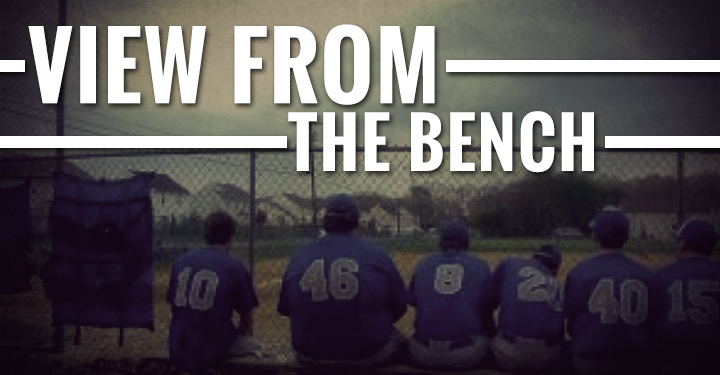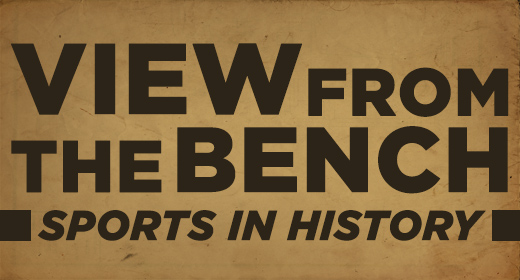Back in the early 1990s, Charles Barkley sparked a great deal of controversy when he and Nike commenced a unique advertising campaign. Sir Charles stood before the camera and said “I’m not a role model… Just because I dunk a basketball doesn’t mean I should raise your kids.”
Many in the public were outraged by this advertising campaign. They believed (wrongfully, in my opinion) that Sir Charles was shirking his responsibility to the scores of children who idolized him. They thought Chuck was saying that he was not accountable to children for his own misdeeds. Never shying away from controversy, Barkley stood firm against the criticism. His responses included: A million guys can dunk a basketball in jail; should they be role models? He demanded that parents quit looking to him to “raise your kids” and instead be role models themselves.
More than two decades have passed and the hero-worshipping of athletes has continued without any apparent abatement. Yet current athletes are no more deserving of this role model status then were they when Sir Charles spoke out on his subject.
Of recent past, media coverage of the sports world has seemingly focused almost exclusively on the ills of our society. We have suffered through years of discussion about performance-enhancing drugs, with names ranging from Sosa, McGwire, Clemens, and Bonds to more recent scandals involving Braun, Melky Cabrera, Nelson Cruz and A-Roid. There have been unfounded (to date) allegations of sexual abuse levied against the current starting quarterbacks in San Francisco and Pittsburgh as well as a similar claim against the number one basketball star who plays for an LA team not named the Clippers. Many cheered on Aaron Hernandez while playing as a Florida Gator and then in tandem with Gronk in New England but looked on with disbelief when we all first learned of the murder allegations levied against him, as if this exceptional athlete could not have committed such heinous acts. Allegations of child abuse have come to light against the likes of Adrian Peterson and many in the public look for excuses, such as his difficult upbringing, to mitigate the horror of his actions.
And then there is Ray Rice, the new poster-child for domestic violence. Similar acts of cruelty and violence perpetrated against women are played out in neighborhoods, rich and poor, throughout our country every day. But they never get reported by TMZ. The manner of public outcry has been a sign of progress in raising public awareness about domestic violence but much of the focus has been misplaced. Rather than looking to address the evils of domestic violence, the majority of discussion has been about Commissioner Goodell’s mishandling of the investigation and the Ravens’ ownership covert support of Ray Rice. Then there have been many of the Ravens’ loyalists, including women, who have worn his jersey to games as a show of support for this abuser.
Thousands of fans, young and old, have adorned the jerseys of many of these underserving icons. As a society, we colluded in anointing these athletes to hero status with little concern about the impact their status had on the very impressionable minds of children, who idolize these stars.
Some of the athletes who are worshipped for their on-the-field prowess are either in their late teens or early 20’s. Science tells us that these young adults have not yet achieved full brain development at that age and normally do not achieve that full brain development until around age 22 or 23.
So what part of brain development is incomplete? The answer is the prefrontal cortex, the part of the brain that is responsible for judgment and the ability to assess the future consequences arising from current behaviors. It is also this part of the brain that allows us to suppress urges that, if not suppressed, could lead to socially unacceptable behaviors. Therefore, based on pure science, young adult males are more prone to make bad decisions in their late teens and early 20’s than they will be by the time they reach their mid-20’s. Is there any surprise that teenagers and young adults often employ bad judgment?
Why then are we dismayed when these suddenly anointed newest rising stars fall short in serving as role models? Johnny Manziel behaves like a spoiled, irresponsible frat boy who suddenly won the lottery. How dare he…doesn’t he know that he is Johnny Football, the latest among Marvel’s Superheroes? We are disgusted with Jameis Winston, the most recent Heisman Winner, when he jumps on a table and screams about obscene acts to be performed on a woman. Doesn’t he realize he is the latest Heisman ambassador? How could they behave like wild teenagers when there are legions of children buying their jerseys and wanting to be like Johnny Football or Jameis.
Do we declare to our children that these athletes can be admired for what they can do on the field but must earn our respect as to who they are off the field? No. We actively or tacitly encourage their hero status. When Jameis Winston is suspended for the Clemson game, he is allowed to stay visible on the sidelines and behave as if he is a leader on the sidelines, selflessly dedicated to the success of his teammates. Every kid around the country who watched the game saw Jameis the team member and leader, not Jameis the offender. Why was he given that opportunity to play for the cameras? Why wasn’t he required to stay in the locker room, or not allowed in the stadium at all?
We can allow our children and the child in each of us to marvel at the athleticism of these superstars but should never then assume that any of that measures their character. If I want my child to learn how to be the best at driving a golf ball, I might call upon Tiger Woods. But one thing is certain; I would not call upon him if I want my child to learn about having the drive to live a righteous life.
Children and adults wear jerseys with the names of Peterson and Rice prominently displayed on their backs. One of two things must happen. If we continue to wear jerseys of team players, we must teach our children that it merely represents admiration for their athletic ability and that is all that it reflects. If wearing the jersey represents some form of coronation, it is time to replace them, not with other names of athletes such as Fitzgerald or Jeter who, by all appearances, have earned that level of respect. Rather, the name on the back should be “My Dad” or “My Mom” or “My Teacher” or some other person who has demonstrated the character and commitment to serve as a role model for that particular child.
Kids are jubilant when a baseball player hands the child a baseball and we all marvel with smiling faces at the act of kindness shown by the player. Really? He is so wonderful because he took five seconds to hand a baseball that he did not own to a child who was in close proximity? Nice act, I agree, but does it really deserve to become one of life’s most memorable events? How about if we shower that admiration on the single parent who never misses his or her child’s game, despite holding down two jobs. Maybe we could follow the lead of Kevin Durant, one of those superstars who are viewed by fans with god-like wonder. When he won his MVP award, he did not hold up high the jerseys of players he idolized while growing up. Rather, he paid tribute to his mother. He addressed his mother and said: “You made us believe. You kept us off the street. Put clothes on our backs, food on the table. And when you didn’t eat, you made sure we ate. You went to sleep hungry. You sacrificed for us. You’re the real MVP.”
Sir Charles, I refer to you as “Sir” not only because that is the moniker that attached to you years ago, but because you took a stand that we have all been too slow to understand. You have earned my respect by consistently reminding us that athletes might excel at their sport, but much more should be required from them if we are going to assume that their athleticism is a measure of their humanity and character.
Related posts:
Bruce Richard
Arizona resident for 30+ years and avid sports fan since as long as I can remember. I possess a lifelong passion for sports and it's great traditions.

